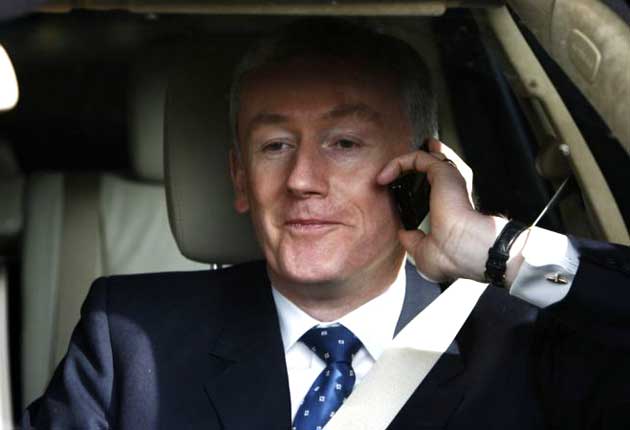MP lifts veil on Fred Goodwin super-injunction

Sir Fred Goodwin, the former chief executive of the Royal Bank of Scotland who became a focal point for anger over the financial crisis, has obtained a super-injunction banning the media from identifying him as a banker.
The existence of the super-injunction was revealed today by John Hemming, a back-bench Liberal Democrat MP who tabled a question in Parliament about the gagging order.
Normally the media is forbidden from even reporting that a super-injunction exists but Parliamentary privilege allows MPs to speak on the floor of the House of Commons without risk of prosecution.
During a business debate at the House yesterday morning, Mr Hemming stood up and stated:
“In a secret hearing this week Fred Goodwin has obtained a super-injunction preventing him being identified as a banker. Will the government have a debate or a statement on freedom of speech and whether there's one rule for the rich like Fred Goodwin and one rule for the poor?”
The Leader of the House Sir George Young replied that a forthcoming debate would explore freedom of speech in the UK adding: "I will raise with the appropriate minister the issue he has just raised."
Injunctions are commonly used by courts to stop the media from publishing certain details. Super-injunctions are a particularly draconian type that forbids the press from even reporting that an injunction exists. Once a rarity they are now becoming an increasingly common method of gagging the press from reporting on people who are often wealthy, public figures.
The terms of the super-injunction covering Mr Goodwin are likely to be so strict that The Independent would be unable to report why a gagging order was taken out by the former RBS chief executive and what information he is trying to protect.
Reference to Sir Fred's occupation will have been excluded from the court documents in the public domain to prevent the public and media guessing the identity of Mr Goodwin and undermining the Court's decision, rather than because any specific complaint was made of the term banker.
Speaking to The Independent, Mr Hemming called on the government to look into whether super-injunctions were enabling the rich to create new privacy laws without proper parliamentary oversight.
“The first question we need to ask is whether we are creating privacy laws by the back door without statutory underpinning or public support,” he said. “I think that’s arguably the case. We also need to ask whether we have any accountability on super injunctions – after all, currently there is no super injunction register, we don’t know how many there are and we don’t know who is asking for them.”
The former RBS chief, who earned the moniker “Fred the Shred” for his management style, became a major source of anger over the financial crisis because he presided over a bank that had to be rescued by a major bailout from the tax payer.
There was further outcry when it was revealed that he had left the bank with a £700,000 pension and a personal pot of £3million. He eventually agreed to reduce his pension by £200,000 a year.
A judicial committee, which was set up last year to investigate the use of super-injunctions and other methods of gagging the press, is due to report back soon. Legal sources say the committee, which is led by Master of the Rolls, Lord Neuberger, is sue to report back within the next four weeks.
Yesterday’s question by Mr Hemming is not the first time an MP has used parliamentary privilege to disclose the existence of a super-injunction. A similar tactic was used two years ago by a Labour MP to reveal that the media had been banned from disclosing the details of a report into the dumping of toxic waste in the Ivory Coast by the oil trading firm Trafigura.
A spokesperson for Index on Censorship, the free speech campaing group, said: “The emergence of the super-injunction has had serious implications for free speech in Britain. While everyone has a right to privacy, it’s vitally important that rulings on press issues should not be kept secret. It is an unfortunate state of affairs that a free society needs to rely upon parliamentary privilege to ask questions.”
Join our commenting forum
Join thought-provoking conversations, follow other Independent readers and see their replies
Comments
Bookmark popover
Removed from bookmarks